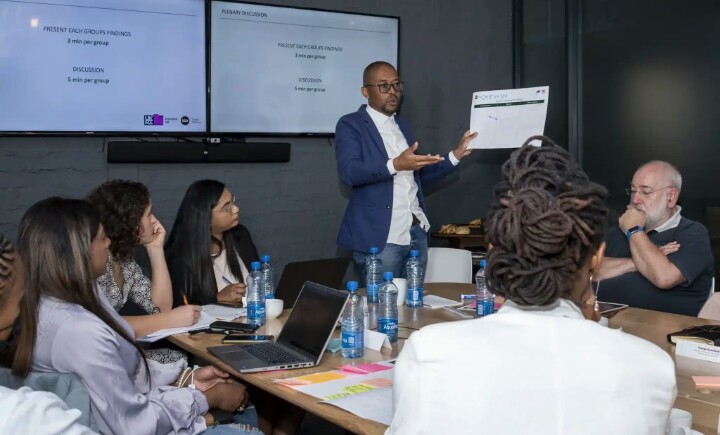There are currently more than 500 townships in South Africa, and their combined population accounts for 40% of that nation, according to figures from Ande Global.
Entrepreneurs in these townships generally face several difficulties, such as a lack of money and resources needed to launch and grow their businesses, as well as restricted access to infrastructure, knowledge, and assistance.
Global Alliance Africa, an initiative of Innovate UK KTN, has been supporting the entrepreneurs by operating a Place-Based Innovation (PBI) intervention that aims to increase the capacity and resilience of Gauteng’s township economies.
With the knowledge that innovation can play a crucial role in fostering equitable socio-economic development across the African continent, it accomplishes this by trying to open up local and grassroots innovation ecosystems.
To learn more about the initiative, its popularity, and the difficulties it has encountered in South Africa, TechCabal spoke with Marisa Naidoo, Knowledge Transfer Manager for South Africa at Innovate UK KTN Global Alliance Africa.
Read also: NITDA’s Innovation Ecosystem Initiatives Entail 1500 IT Centers
Background of Global Alliance Africa
“What we really do is try to understand the problems within the innovation ecosystem that are specific to townships. We then try to enable township innovators by utilizing what currently exists and building on that so that their solutions become scalable and sustainable,” said Naidoo.
The Global Alliance Africa initiative was created by Innovate UK KTN, a division of the UK innovation agency Innovate UK. They have a six-year project that is sponsored by UKAid and carried out by Innovate UK KTN, as well as a global initiative that is supported by the Foreign Commonwealth and Development Office. The six-year project, which is being carried out in Kenya, Nigeria, South Africa, and the UK, seeks to increase equitable market access, funding, investment, and knowledge transfer between the African nations and the UK.
The initiative is primarily concentrating on township economies in the Gauteng province of South Africa and how they might be boosted using the people and infrastructure. To do this, a group of experts from the UK, universities, NGOs, and government stakeholders has been assembled as an advisory board to try to comprehend the issues with the township innovation ecosystem.
The operating method of Global Alliance Africa
Naidoo claims that one of Global Alliance Africa’s initiatives functions via a system known as “open innovation,” which links sectors that face difficult challenges to individuals who have solutions to these specific issues.
“What we do [through open innovation] is we support getting the solutions from the innovators, that will help tackle the challenges that the particular industry has. This then helps the innovator scale their market-ready product with an industry partner,” added Naidoo in an interview.
Global Alliance Africa focuses on finance after introducing the innovator to a business partner so that they can carry on making compound improvements to their product.
“Our funding approach focuses on providing access to funding opportunities for the African market. Through collaborative research, we are able to identify development funding opportunities in key thematic areas and share that information on what sort of funding opportunities exist with the innovators.”
The Global Alliance Africa project in South Africa focuses on entrepreneurs who are developing remedies for the problems of energy, water, and trash.
Orda secures funding to help digitalize Africa’s dining scene
Some challenges the Global Alliance Africa project has faced
According to Naidoo, the biggest issue the project has encountered in South Africa is the absence of coordination and cooperation among the many entrepreneurs and inventors in the nation. There are so many people and groups producing incredibly inventive stuff, but they don’t actually communicate with one another, which makes it easier for them to become stuck if they are unsure of what to do next.
Global Alliance Africa facilitates networking between innovators in the nation through a variety of efforts to address this problem.
Fostering innovation through initiatives like Global Alliance Africa could go a long way in easing these difficulties in a nation where townships account for the bulk of the urban population and are plagued by serious socioeconomic problems like young unemployment and criminality.




